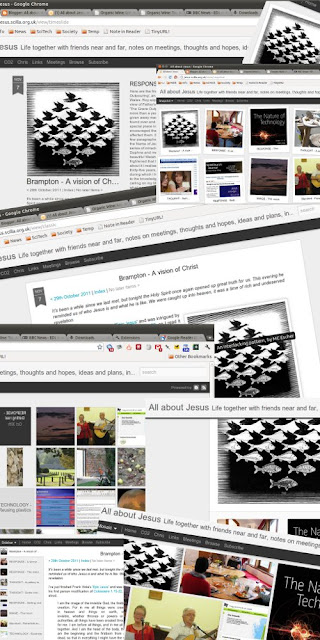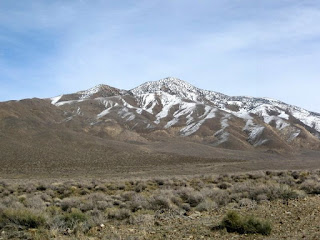< A sense of direction | Index | Unexpected visitors >
In this second part of the story Daphne suggests Roy should pray and he demands some action from the Most High. And then there's a knock at the door.
In the first part, Roy was beginning to feel he should leave Ffald-y-Brenin, the Welsh retreat centre he and Daphne were running.
Here's part two.
Daphne, petite and blonde, is always full of incredible wisdom and insight, and she just calmly looked at me and said, 'Hmm. Well, if that's how you feel, and you feel so strongly, it's about time you told God about it.'
Suitably rebuked, I retreated to the upstairs office to pray. Fortunately I wasn't aware that her internal response was actually 'Well you can leave if you like, but I'm not!' That just might have affected my conversation with God, which was going something like: 'Lord, I need to be spending time with people who don't know you. I cannot survive unless I'm doing this, because this is what you made me to be, this is what I am ... somebody who introduces people to you, who connects them, or fans the flame.'
The pent-up emotions surfaced in my jumbled words. 'How can I be whom you created me to be unless I am sharing you with those who don't know you, or seeking to heal the hurting, or fanning flames of passion in those who are on the fringes of walking with you? What am I without you? How can I live unless I obey your call? How can I be someone else? Lord, something has got to happen. I cannot stay here unless you do something.'
My talk with God finished I returned to the everyday rhythms of life at Ffald-y-Brenin. Within hours there was a knock at the door. Tall and middle aged, the couple who greeted us were strangers.
'Hello, I hope you don't mind us calling like this, but I wonder if you could tell us what this place is.'*
Roy knows from experience that communication is fundamental to a healthy emotional life, just as eating and drinking is fundamental to a healthy physical life. On this occasion he communicates with his wife (by listening) and with the Almighty (by speaking). But both have thoughts hidden from Roy. Daphne doesn't want to leave Ffald-y-Brenin. And Father plans to answer Roy's prayer in ways he doesn't expect.
One of the great things about our heavenly Father is that he really is a Dad. It's simply the best description of what he's like. He listens to what we say and ask. But he replies out of experience and wisdom beyond our own, and out of love. He delights in our presence with him. He listens to what we say to him, and if we are listening we'll hear what he has to tell us. Telling him how we feel is always a step in the right direction. But when we're not paying attention he sometimes just shows us.
Perhaps on this occasion Roy didn't wait for Father's reply. But the answer still came - it began with that knock on the door and a question from two strangers.
If you're enjoying the story so far please drop by later for more. Or better still, buy a copy of the book and read it.
*Copyright 2008 Roy Godwin, Dave Roberts. The Grace Outpouring published by David C Cook. Publisher permission required to reproduce. All rights reserved.
< A sense of direction | Index | Unexpected visitors >




























